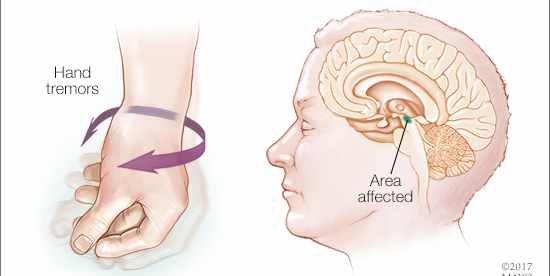The Woman Who Sniffed Out Parkinson’s

Colloquially speaking, we humans have five senses — taste, touch, hearing, sight, and smell. And generally, the last one on that list is considered the weakest of the bunch. Compared to other animals — dogs, for example — our ability to pick up and differentiate between scents is just not as strong as it could be.
No one told Joy Milne that, though. And her nose may have unlocked a way to diagnose Parkinson’s disease before its earliest typical symptoms appear.
Parkinson’s, if you’re unfamiliar with the disease, is a dignity-depriving condition that typically affects a small subset (1% to 5%) of the population aged 60 and above. It’s a degenerative, incurable disease that robs patients of motor control — uncontrolled shaking and slowness in walking — and often leads to memory loss and dementia as it progresses. It’s often difficult to diagnose before the tremors begin and, as a result, there have been few successes in finding treatments that begin before those first symptoms arrive.
Ms. Milne’s nose, though, may be changing that. In 2015, her husband died after a prolonged battle with the disease. During the course of his illness and beyond, she was active in her local community in Scotland, finding comfort among those whose loved ones were also affected by the disease. And at one such gathering, she came across a familiar odor. Six years before her husband received his grave diagnosis, Ms. Milne noticed that he smelled differently. She told the BBC that “his smell changed [ . . . ] It was very subtle – a musky smell.” And she picked up that smell again — multiple times — at a Parkinsons UK event.
Milne approached some Parkinson’s researchers who dismissed her at first but, ultimately, decided to put her nose to the test. Per Discovery Magazine, “they conducted what they call the ‘the t-shirt test.’ They recruited a handful of Parkinson’s patients and a control group (people without Parkinson’s) to sleep in identical t-shirts. Then, without telling her who was who, they presented them one at a time to Milne.” Milne smelled the t-shirts and concluded that twelve of them had the odor, which was surprisingly accurate — 11 of the 12 were, indeed, from the group of Parkinson’s patients.
The research team began to wonder if they had some new evidence on their hands. And if there was any lingering doubt, it was about to get eradicated. After the test was complete, her one false positive approached the researchers with new information. Even though he was originally in the control group, he, too, was subsequently diagnosed with Parkinson’s. Milne — via smell — had caught the disease before anyone else had any reason to suspect something was amiss.
Milne spent the subsequent few years working with researchers to try to document her smelling skills into a useable test for the disease. According to Smithsonian, we may be close: “With Milne’s help, the scientists isolated four compounds associated with the singular Parkinson’s scent.” Perhaps in the future, Milne’s super-smelling skills will help us find ways to better treat, if not cure, Parkinson’s.
Bonus fact: For those afflicted with Parkinson’s, even a simple thing like eating cereal and milk can be challenging — if your hand keeps shaking, your spoon is too. But one team of inventors is hoping to solve for that. Their product, seen here, is a spoon which anticipates the shaking hand’s movements and stablizes itself, allowing for the Parkinson’s sufferer to eat without any other assistance.
From the Archives: Smell Ya Later?: We may be losing our sense of smell.
